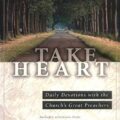 Author of The Wooden Ox
Author of The Wooden Ox
by Trisha Bleau Smith
T4JYM: I loved reading The Wooden Ox and thought it was an amazingly written story. I was touched by the characters and given a glimpse into a life I have never seen. Where did the idea for the book come from?
LH: We were missionaries in Mozambique for six years during their civil war. It was probably the most difficult time of my life. I loved Africa and the Mozambican people, but I struggled with the senselessness of the war and the difficulty of day-to-day living when there was nothing to buy in the country and often no water or electricity even in the capitol city. And then there was the guilt trip of having ‘stuff’ when no one else had anything. It was physically, emotionally and mentally exhausting. The actual plot was inspired by a group of missionaries kidnapped by rebels in 1986.
Writing The Wooden Ox was a way of pulling together my confusing emotions and trying to communicate them to others. It is a children’s book because if I had used an adult point of view it would have been too depressing. A thirteen-year-old could be naïve enough to have hope.
T4JYM: What was the response from the various publishers? How many publishers did you send your book to before it was picked up? Was it rejected by any publishers?
LH: I had trouble knowing whom to approach because my writing is too religious for the mainstream publishers, and most of the Christian publishers only wanted series for this age group. In the end I sent the proposal and sample chapters to four different publishers. One sat on it for over a year without making a decision. Another rejected it because Keri considers giving up her faith. “We must trust God no matter what,” the publisher said. Yes, I wanted to say, but there comes a point when we realize he CAN be trusted.
I sent the manuscript to Kregel on the recommendation of a friend. Looking at their current list, there was no reason to think Kregel might be interested, but my friend knew of another novel about Africa that was in the works. They accepted it immediately.
T4JYM: What do you hope to achieve by publishing a book such as The Wooden Ox?
LH: When I wrote the book, I was thinking mainly of my own spiritual struggle with the problem of pain. The book was released in the fall of 2002, and I think becomes especially pertinent as we consider war with Iraq. I want to say to young people, “This is not a video game. Real people will suffer as a result of any action we take.”
T4JYM: How has this book been received by the general public? Has there been positive feedback? Any negative feedback? What has been the response from youth, being that the topic is one that is so influential in their lives?
LH: Readers have told me they were surprised by how serious the book is. Some adults have questioned whether or not it is really a book for young people, because they enjoyed it as adults. So far I have not had much feedback from non-believers. I would really like to see the book read by young people who never see the inside of a church.
T4JYM: What has been the response from people such as those in the book? Have they had an opportunity to read and respond?
LH: One missionary friend whose wife was killed in a bandit attack was unable to finish it. It simply hit too close to home. Others who know Africa have praised the descriptions of life and the countryside, especially the festive dancing and the out-of-date calendar decorating the chief’s wall.
T4JYM: What are your next plans for writing?
LH: I am currently working on a historical novel from the time of King Henry VIII set in Glastonbury Abbey, the legendary site of King Arthur’s burial. We lived in England for a couple years and I’m familiar with the countryside, but the historical details have meant a lot of digging into books on the period.
T4JYM: Have you written any other books? Do you write for anything else – such as magazine articles or newspapers?
LH: In the spring of 2003 Kregel will release Between Two Worlds, about a missionary kid on furlough struggling to fit in. Between Two Worlds was written before The Wooden Ox. Kregel has also accepted a picture book text set in southern Africa which was written earlier yet!
Magazine articles are a good apprenticeship for learning to write concisely and effectively. I sold a few articles before Kregel accepted The Wooden Ox, but now I concentrate on longer fiction unless I have a solid idea with an obvious market.
T4JYM: What training do you have in writing? Did you take any writing courses in college to obtain the skills you have currently?
LH: I have always written letters to family and friends from the various countries where we have lived (five countries outside the U.S.). When I started writing fiction (because there was a story that wouldn’t let me sleep), I was driven to the library for books on how to write. Eventually I signed up for a correspondence course so I could have some intelligent feedback. When we moved back to the States, I found a critique group of other writers for young people. They are the ones who cut up my long complicated sentences, pruned my unnecessary background information and refined my style.
T4JYM: Who were the biggest influences in your life generally speaking, and who were the biggest influences since you decided to write?
LH: The biggest influence in my life was my parents. They were not able to become missionaries because of health problems, but they never lost sight of Kingdom of God priorities. Whether they were contributing money to the support of overseas missionaries or getting involved in the lives of inner city residents at the local mission, they were committed to living out the gospel in every way.
The biggest influence on my writing has been my critique group and a book by Anne Lamotte called Bird by Bird.
T4JYM: What advice would you give to someone who wants to pursue a career in writing?
LH:
- Read, read, read! Most of your reading should be the kind of books you want to write. If you read junk, you’ll probably write junk.
- Write, write, write! It is only as you try to write that you will begin to understand the questions.
- Check out the 808 section in your library for books on every aspect of the process.
- Find or create a critique group. Good critique doesn’t tear down. It finds what is good and helps the author to make it better.
- Rewrite and rewrite again, applying everything you have learned from those library books and your critique group.
T4JYM: What advice would you give to someone interested in publishing their works?
LH:
- Believe in yourself. If you are convinced you have a good idea, don’t give up.
- Search out a publisher that shares your vision. Notice who publishes the books you like, or the books that are similar to what you are writing.
- Enter writing competitions. My picture book text was picked up in part because it had won an honorable mention in a Writer’s Digest contest.
- Don’t become discouraged. The first book you write won’t necessarily become the first book you have published. Rejection is normal, and you’ll never make it without persistence.





Be the first to comment